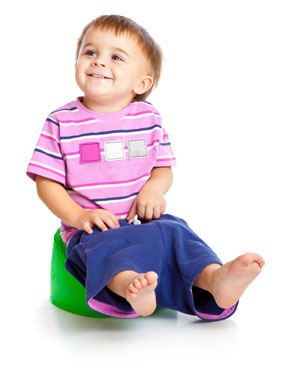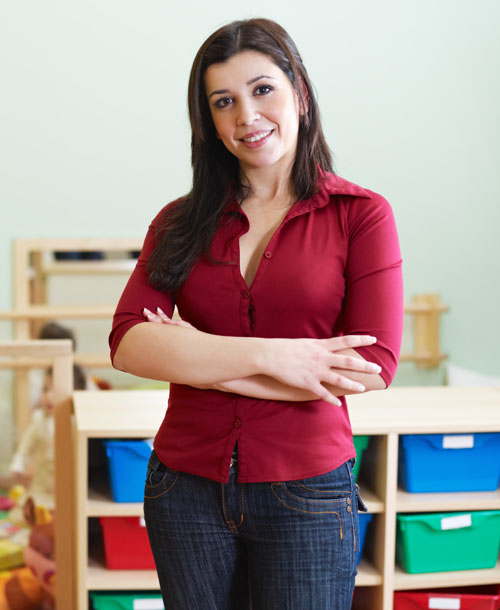by Colleen Brunetti, MEd
Potty training is a huge milestone! Not only does it mean the eventual end to diapers and pull-ups, it means your little baby is taking some figurative steps towards being “so big!” But when is a child ready for potty training?
 As is so often the case, the time when children are ready to train has largely to do with just one thing – the children themselves. There is no exact age at which a child is ready to potty train. What does happen, however, is that a child begins to exhibit some signs and signals that they might be ready to start trying to use the potty.
As is so often the case, the time when children are ready to train has largely to do with just one thing – the children themselves. There is no exact age at which a child is ready to potty train. What does happen, however, is that a child begins to exhibit some signs and signals that they might be ready to start trying to use the potty.
As a general rule of thumb, some children are ready to begin training as early as 18 months, while others will need to wait until they are three or maybe even four. If you have a child with special needs, the window of readiness may differ.
Here are some signs that you can look for to help you decide if your child is ready to potty train.
Interest Level: One of the first signs that your child may be ready to potty train is when they demonstrate an interest in the process. Do they follow you into the bathroom, ask questions or point to the potty, or show other signs of interest?
Language Ability: Many experts say that a sign of readiness has to do with language – can a child communicate by asking questions and can they follow simple directions? While this may be one factor to consider, also remember that if you are using sign language in your home, odds are good that language is going to come sooner than if you had to wait for spoken words!
Does this mean your child who signs will be ready sooner than a child who does not? Maybe, or maybe not. It is certainly something to consider though, especially as sign language can offer such a boost in so many areas. Why not potty training as well?
Physical Development: Children will need to be able to sit long enough to go. Some children indicate they may be ready to train by expressing discomfort over soiled diapers. They may have more predictable times when they go, and they may begin staying dry in their diapers for increased periods of time.
Emotional Development: Children who are ready to potty train may exhibit signs that they are anxious for some independence (“I do it myself!”) However, they should also be in a stage where they are willing and wanting to please you. This means that even if all the other signs are there, but you are going through a stage of the “terrible twos”, or something similar, it may be best to hold off. Starting to potty train when a child is in a stage where they are constantly testing limits may result in frustration for all.
Upcoming Events: If your child is about to have a major life change (new sibling, new daycare, change in family members in the home, etc.) you may also want to wait a bit.
No matter what, remember that all kids end up potty trained eventually! A child may be ready, and then need a break, or take months to train, or train in a weekend. Your first child is likely to train in a completely different way than your next child. Whatever the case – patience, love, and careful observation on your part are the real keys to success.





 As is so often the case, the time when children are ready to train has largely to do with just one thing – the children themselves. There is no exact age at which a child is ready to potty train. What does happen, however, is that a child begins to exhibit some signs and signals that they might be ready to start trying to use the potty.
As is so often the case, the time when children are ready to train has largely to do with just one thing – the children themselves. There is no exact age at which a child is ready to potty train. What does happen, however, is that a child begins to exhibit some signs and signals that they might be ready to start trying to use the potty.